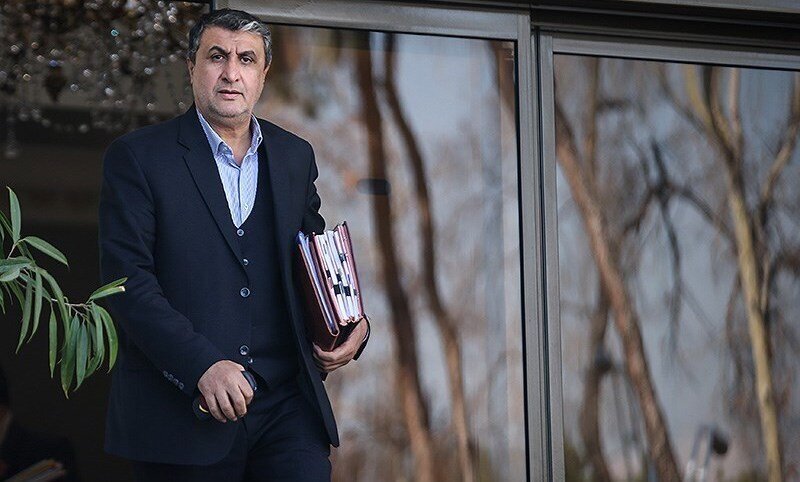Iran, Russia to speed up implementation of Bushehr projects to make up for delay

TEHRAN — Atomic Energy Organization of Iran (AEOI) chief Mohammad Eslami explains about the achievements of his trip to Russia, telling reporters that the AEOI and Rosatom have signed bilateral contracts, IRNA reported on Wednesday.
Eslami said in his meeting on Tuesday with Alexey Likhachev, the director general of Russia’s Rosatom, an initial understanding was made to carry out joint projects and plans in the field of nuclear energy with a higher speed.
He said these projects include use of radiation in medicine, building new nuclear power plants, especially development of the second and third units of the Bushehr nuclear power plant.
According to Press TV, Eslami’s visit to Moscow came after unconfirmed reports that the Russians had slowed down work at new projects in Iran over unpaid funds.
“It was also agreed that our financial payment obligations will be timed so that the project is not delayed anymore,” Eslami underscored.
He also noted it was agreed that the 22-month delay should come to an end, and both sides need to accelerate efforts to make up for the delay in implementing the projects.
“Iran, Russia consult on development of nuclear cooperation”
Eslami and Likhachev discussed the development of peaceful nuclear cooperation on Tuesday evening, discussing issues of mutual interest in the field of nuclear energy.
“Cooperation between the two countries in the field of peaceful nuclear activities, including the construction and development of nuclear power plants, is progressing well, and this cooperation should be expanded further,” Eslami said during the meeting, Press TV reported.
The Tuesday meeting marked Eslami’s second meeting with Likhachev in less than a month. Last week, the two nuclear chiefs met on the sidelines of the 65th regular session of the IAEA General Conference in Vienna.
Eslami visited Moscow on Tuesday to meet with Likhachev and some of Russia’s senior officials.
Upon his arrival in Moscow, he dismissed Washington’s call on Tehran to grant access to the International Atomic Energy Agency’s inspectors to one of its nuclear sites.
Eslami said the “countries that did not condemn terrorist acts against Iran’s nuclear site are not qualified to comment on inspections there.”
At issue was an IAEA report issued on Sunday in which it said while Iran had granted access to its nuclear sites as agreed on September 12, it had prevented IAEA inspectors from visiting a workshop at the TESA Karaj complex, after it was targeted in a sabotage act in June in which one of the four IAEA cameras was destroyed.
Eslami and Kamalvandi, in addition to Iran’s ambassador to international organizations in Vienna, Kazem Gharibabadi, strongly criticized the IAEA for not condemning the “terrorist attack” at the complex.
“During the discussions in Tehran and Vienna, Iran indicated that since the Tesa Karaj Complex is still under security and judicial investigations, equipment related to this complex are not included for servicing. That's why the phrase ‘identified equipment’ has been used in the joint statement’,” Gharibabadi tweeted on Monday.
Iran has blamed Israel for the attacks targeting the TESA complex as well as for another attack at Iran’s Natanz nuclear facility in April.
SA/PA
Leave a Comment